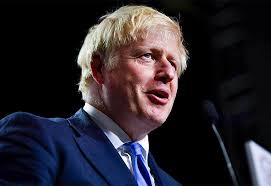One of the front-runners in polls to succeed Prime Minister Boris Johnson, Britain’s defence secretary, declared on Saturday that he would not enter the already contentious race for the top job.
A committee of backbenchers will meet on Monday to decide on the timetable and rules for the likely months-long campaign, which could pit more than a dozen Tory lawmakers and various factions of the ruling party against one another.
So far, four candidates have declared their candidacy. Former finance minister Rishi Sunak, who assisted in sparking the cabinet uprising that resulted in Johnson’s forcible resignation on Thursday, is currently the front-runner.
When Sunak announced his resignation late on Tuesday, dozens of other less senior coworkers quickly followed suit, forcing his former boss to step down as Tory leader 36 hours later. Johnson, whose three years as prime minister were marked by scandal, the country’s exit from the European Union, and Covid, however, declared he would continue in office until his successor is chosen.
Now, a summer of bitter campaigning is approaching. Before the Conservatives’ annual conference in early October, party members will ultimately choose their new leader from a two-person shortlist that has been narrowed down through multiple rounds of MP voting.

Because of the toxic confluence of high inflation, widespread cost-of-living increases, stagnant growth, and relatively high tax rates that Britain is currently experiencing, taxation will likely figure prominently in the election along with candidates’ stances on Brexit.
Along with Sunak, Suella Braverman, the attorney general and a fervent Brexiteer, Kemi Badenoch, a relatively unknown former equalities minister, and Tom Tugendhat, a backbencher Tory MP, have also declared their candidacies.
Liz Truss, the foreign secretary, and Nadhim Zahawi, the new finance minister, who took Sunak’s place in the treasury on Wednesday, are anticipated to join the crowded field that may also include


